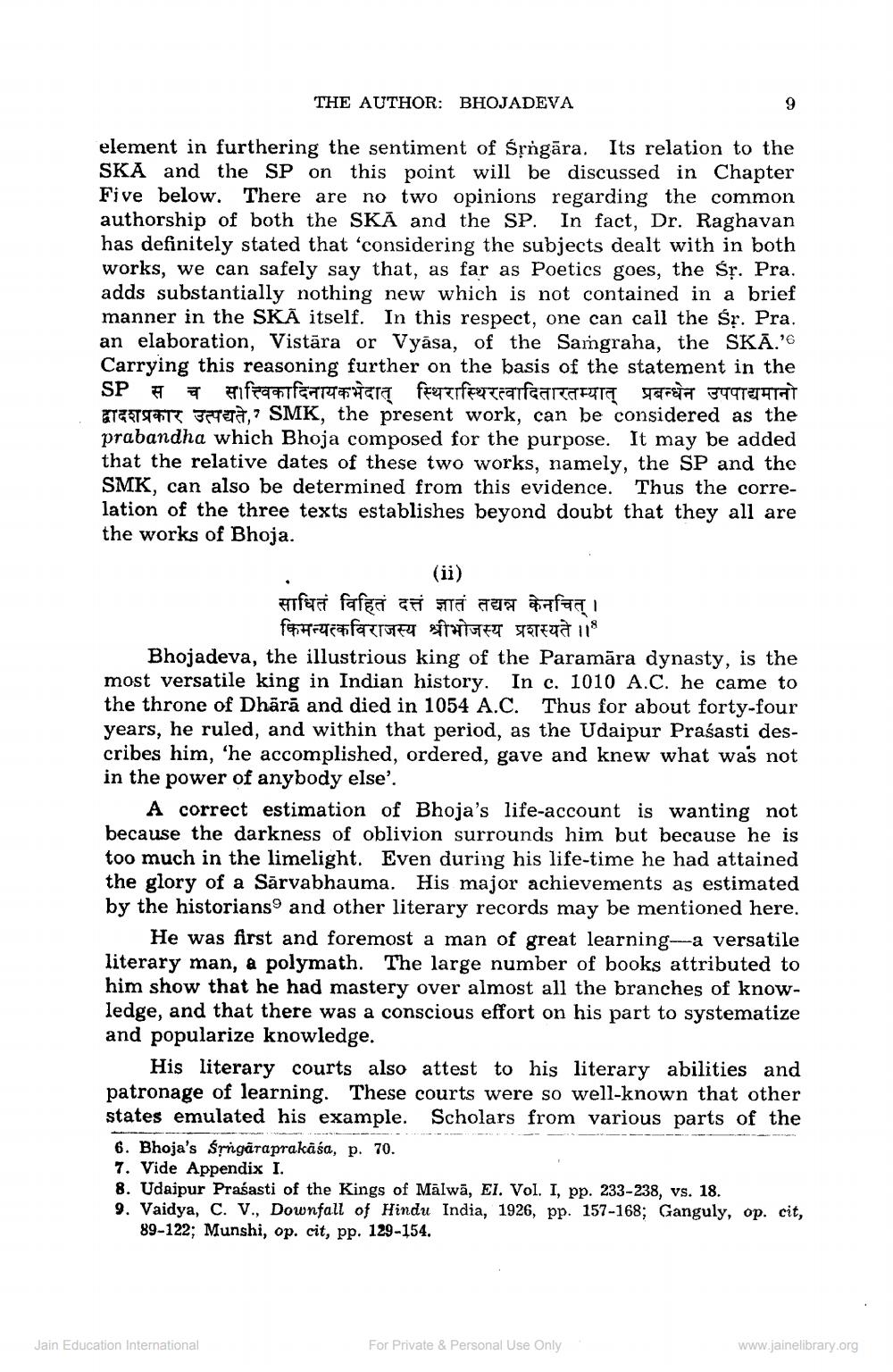________________
THE AUTHOR: BHOJADEVA
element in furthering the sentiment of Sṛngāra. Its relation to the SKA and the SP on this point will be discussed in Chapter Five below. There are no two opinions regarding the common authorship of both the SKA and the SP. In fact, Dr. Raghavan has definitely stated that 'considering the subjects dealt with in both works, we can safely say that, as far as Poetics goes, the Śr. Pra. adds substantially nothing new which is not contained in a brief manner in the SKA itself. In this respect, one can call the Śr. Pra. an elaboration, Vistara or Vyasa, of the Samgraha, the SKA.' Carrying this reasoning further on the basis of the statement in the SP स च सात्त्विकादिनायकभेदात् स्थिरास्थिरत्वादितारतम्यात् प्रबन्धेन उपपाद्यमानो ETER¶ÐIR BETÀ, SMK, the present work, can be considered as the prabandha which Bhoja composed for the purpose. It may be added that the relative dates of these two works, namely, the SP and the SMK, can also be determined from this evidence. Thus the correlation of the three texts establishes beyond doubt that they all are the works of Bhoja.
(ii)
साधितं विहितं दत्तं ज्ञातं तद्यन्न केनचित् । किमन्यत्कविराजस्य श्रीभोजस्य प्रशस्यते ॥
Bhojadeva, the illustrious king of the Paramāra dynasty, is the most versatile king in Indian history. In c. 1010 A.C. he came to the throne of Dhara and died in 1054 A.C. Thus for about forty-four years, he ruled, and within that period, as the Udaipur Prasasti describes him, 'he accomplished, ordered, gave and knew what was not in the power of anybody else'.
9
A correct estimation of Bhoja's life-account is wanting not because the darkness of oblivion surrounds him but because he is too much in the limelight. Even during his life-time he had attained the glory of a Sarvabhauma. His major achievements as estimated by the historians and other literary records may be mentioned here.
He was first and foremost a man of great learning-a versatile literary man, a polymath. The large number of books attributed to him show that he had mastery over almost all the branches of knowledge, and that there was a conscious effort on his part to systematize and popularize knowledge.
His literary courts also attest to his literary abilities and patronage of learning. These courts were so well-known that other states emulated his example. Scholars from various parts of the
6. Bhoja's Srngaraprakāśa, p. 70.
7. Vide Appendix I.
Jain Education International
8. Udaipur Prasasti of the Kings of Malwa, El. Vol. I, pp. 233-238, vs. 18.
9. Vaidya, C. V., Downfall of Hindu India, 1926, pp. 157-168; Ganguly, op. cit, 89-122; Munshi, op. cit, pp. 129-154.
For Private & Personal Use Only
www.jainelibrary.org




